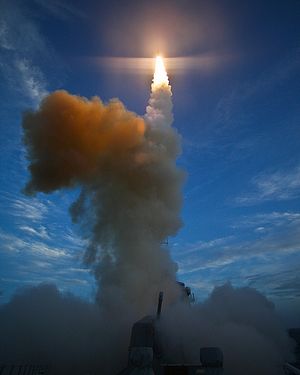As usual, a curated end-week repository of links focused on security and defense:
The United States has long been considering the installation of a Terminal High-Altitude Area Defense (THAAD) system in South Korea, a close U.S. ally. Unfortunately, the proposition is unacceptable to China. Earlier this week, Beijing once again vocalized its opposition to the United States’ interest in moving forward with the sensitive THAAD system. According to Defense News, Chinese Defense Minister Chang Wanquan expressed his “concern” at the U.S. proposal to his South Korean counterpart at a meeting in Seoul. The South Korean defense minister attempted to assuage Chang’s concerns by reminding the Chinese defense minister that no formal discussions about THAAD deployment have taken place. Though South Korea is a U.S. ally, it has been reluctant to welcome a THAAD deployment at the risk of threatening China and Russia — both countries with which South Korea has amicable relations. THAAD, meanwhile, could become a crucial peg in the U.S. regional missile defense system as part of its strategic “rebalance” to Asia.
Shortly after Japanese Prime Minister Shinzo Abe won December’s crucial snap election in Japan, I made the case that amending the Japanese constitution’s restrictions on warfare would be a long and arduous road for Abe and his fellow conservatives in the Liberal Democratic Party. However, given the tragic resolution of a hostage crisis involving two Japanese citizens captured by the Islamic State, all bets are off. A New York Times report, citing people close to Abe, notes that the prime minister plans to kick constitutional overhaul into overdrive going into this year, with a plan to amend the pacifist post-war constitution by next year. The same obstacles I outlined in my earlier piece stand for Abe and his allies, but the psychological effect of the Islamic State’s brutality against Japan’s own should not be underestimated. Several reports from Japan have compared the event to Japan’s 9/11 — a foreboding comparison indeed.
The Russian Air Force recently performed bomber exercises with its Ilyushin IL-76 ‘Candid’ strategic transport aircraft, reports IHS Jane’s 360. The exercise is notable for the use of hard-mounted P-50T practice bombs. Hard-mounted bombs are a more primitive method of delivering ordnance from an transport aircraft, requiring the aircraft to fly directly over the intended target. Generally, these sorts of maneuvers leave bombers incredibly vulnerable to anti-air systems and dedicated attack aircraft.
India’s foray into defense production indigenization isn’t going too well. A $3.5 billion program to replace aging transport aircraft will be sidelined to prioritize additional weapon purchases. The decision to shift priorities comes directly from India’s new defense minister, Manohar Parrikar, and is based on expectations for tighter defense spending in the future.

































